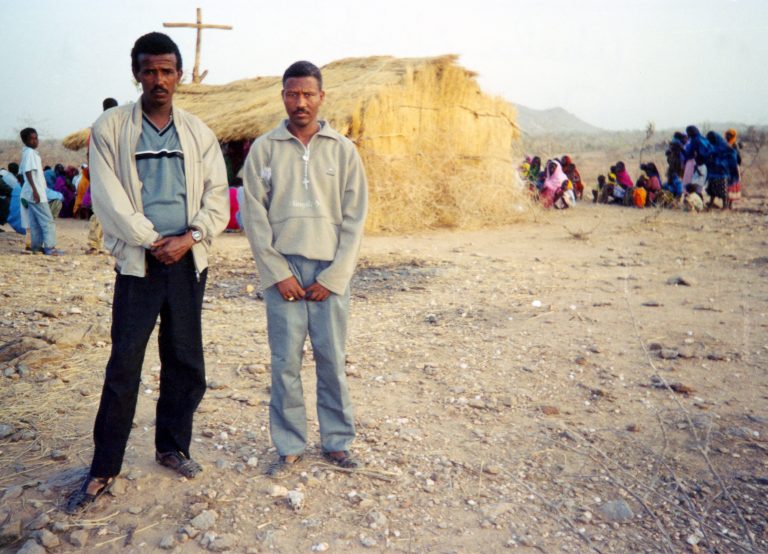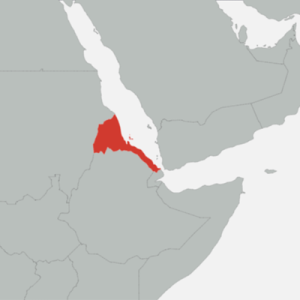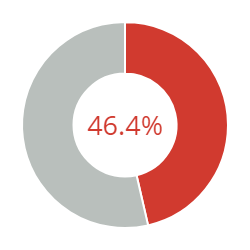Eritrea
Persecuted and Forgotten?
A report on Christians oppressed for their Faith 2015-17

KEY INDICATORS & FINDINGS
Increased government clampdown on Christains, imprisoning those who oppose its increasing control of religious groups.Continuing exodus due to hardships endured by all communities.
STATISTICS |
PROFILE
When a UN human rights commission found in June 2016 that Eritrea’s regime was guilty of “crimes against humanity”, observers noted that the report highlighted in particular “widespread and systematic persecution” against Christians. A year later, the Human Rights Council noted “with grave concern” the government’s continued use of “arbitrary arrest and detention, including incommunicado detention in extremely harsh and life-threatening conditions, of persons suspected of evasion of national service, attempting to flee the country or unable to produce identity documents, exercising the right to freedom of religion, or freedom of opinion and expression.”
There is scarce information about this secretive nation, cut off from the outside world. A long-awaited fact-finding visit to the country by a source known to Aid to the Church in Need in late 2016 shed fresh light on the country’s deepening crisis, revealing that Christians are at particular risk. The Catholic source’s report refutes the government’s continued claims, first uttered in May 2003, that “no groups or persons are persecuted in Eritrea for their beliefs or religion”.
At least 3,000 Christians are reportedly imprisoned in Eritrea, a country which is frequently described as an ‘open prison’, and it is likely that there are many more about whom no records exist. The Catholic source gave reports of a growing number of ‘political prisons’. Many of them consist of metal shipping containers packed with detainees, including large numbers of Christians. Experiencing massively fluctuating temperatures – freezing at night and boiling under the midday Africa sun – the detainees suffer from very poor sanitation and little food. Reports of physical and psychological torture and harassment are common.
Those Christians and others who escape incarceration are more likely than ever to leave the country. The exodus of people from Eritrea is unrelenting; it has been described as “one of the fastest emptying nations” in the world. UN figures suggest 60,000 Eritreans fled the country between 2014-15 – reportedly higher than any other African country. The desire to leave the country is compounded by massive poverty; because of food shortages, UNICEF reports that “half of all children in Eritrea are stunted [in growth]” with malnutrition widespread. According to ACN sources, this deepening poverty means that Christians and others are more susceptible to acts of oppression because of their acute need for basic services.
Those suffering the most are Christians not recognised by the state. Their experience is evidence of the extent to which the government has failed to implement its 1997 constitution, which provides for freedom of thought, conscience and belief. In May 2014, President Isaias Afewerki announced plans to draft a new constitution but, according to the US Commission on International Religious Freedom, to date “no action has been taken”. Since May 2002, there has been official recognition of the Eritrean Orthodox Tewahedo Church, the Catholic Church in Eritrea, the Evangelical Lutheran Church and Sunni Islam. Christians who do not belong to these denominations face incarceration which could happen at any time at a moment’s notice. One such Church member, Dawit, who subsequently escaped Eritrea, said after his time in jail: “In Eritrea, almost every Christian faces imprisonment”. The Catholic source referred to above stated: “The oppression of the regime against believers of religions not recognised by the state is merciless” . Evidence indicated that over the period under review, the Afewerki regime stepped up efforts to arrest and punish people caught practising or disseminating beliefs not sanctioned by the state. A fresh crackdown on Christian communities in May 2017 – apparently marking the anniversary of Eritrea’s independence – led to the arrest of 122 people, many of them Evangelicals. Of these, 33 people – all women – were taken to a notorious island prison in the Red Sea, off the Eritrean coast.
Reports from trusted sources within the country whose identity cannot be revealed showed that the regime was also increasingly intolerant of state-recognised faith groups. The regime has appointed the Mufti and other senior Muslim leaders as well as the leaders of the Orthodox Church. The Eritrean Orthodox Church’s claims of autonomy have been compromised ever since the regime forced the resignation of Patriarch Antonios III in 2007 and imposed a successor, Dioskoros, an act that split the Church. An Eritrean Christian source, who asked to remain anonymous, told Aid to the Church in Need about the problems of governing the Church in such circumstances. He said: “Patriarch Antonios was in prison and is now under house arrest. The Orthodox Church can’t call a meeting with him as he is under house arrest.” In April 2016 the regime arrested 10 Eritrean Orthodox priests who asked for the release of Patriarch Antonios. Apparent signs of improved government relations with the Eritrean Orthodox came in July 2017 Patriarch Antonios made his first public appearance at a service at St Mary’s Cathedral, Asmara. Although the Eritrean Orthodox produced a statement stating the “the issue” with the Patriarch had “come to an end”, the Patriarch had not – at the time of writing – released a statement himself.
Among the recognised faith groups, only the Catholic Church and the Lutheran Church have retained some degree of autonomy. The Catholic Church’s implied criticism of the regime in its pastoral letter of May 2014 lamented the mass exodus from the country: “There is no reason to search for a country of honey if you are living in one.” The Church’s many schools, clinics and other institutes – sometimes described as the nearest Eritrea gets to a national health service – are reportedly seen as indispensable by a government reluctant to pick a direct fight with Catholics despite them numbering barely 150,000 in the whole of the country.
But there are signs of change for the worse here too. A Church source close to Aid to the Church in Need said: “Building and expanding the Church is very difficult… In the last three years, it has become worse – [the government] control everything. There is only one hospital [but it has] no medicine, no equipment – the authorities do not allow the Church to work.” He added: “They have stopped all construction, but only government buildings are built… They try to block the Church’s work. To stop aid is to stop the bishops.” He added: “Priests are not granted a visa if they are under 50 years of age. They can’t go to Rome unless they have done military service.” He said that one Catholic magazine permitted into Eritrea in 2002 has now been stopped.


